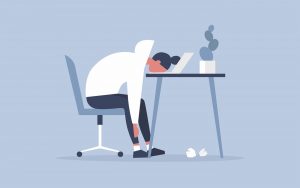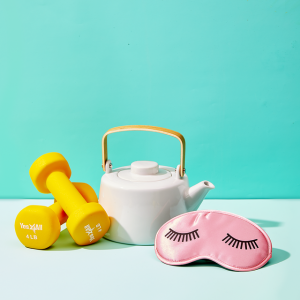 So here we are. For many people this is week six (or more) of sheltering in place.
So here we are. For many people this is week six (or more) of sheltering in place.
It’s also week six of home schooling, endless meal preparation, social isolation, working remotely, and celebrating almost every occasion we can think of virtually – on Zoom, Google Chat, FaceTime, Skype and whatever other device or platform appeals to you.
For some, the past six weeks have included sudden, tragic losses of family members or friends. For others, the losses have involved employment, income, daily routines, human contact, favorite past-times or any sense of normalcy. It’s been rough.
As a collective population, we are tired. We keep trying to figure out where we are headed, and when we will be able to return to some form of our pre-Corona lives. In the meantime, we have to manage the feelings of loss, frustration, anger, fear, sadness, and anxiety that are “normal” during a pandemic of these proportions.
While we wait for the next phase of this very strange time, I encourage everyone to find just a few simple ways to be kind to your emotionally exhausted self.
Here’s what being kind to your emotionally exhausted self could look like:
You stop for a minute every day, and give yourself credit for all you are doing to keep your life (and that of your family and friends) intact.
You take time to cool your system down by going on an extra walk, taking a full lunch break, or enjoying a longer-than-normal shower.
You protect yourself from overworking by instating email curfews — no reading or responding to emails after 10 pm. No opening emails in the morning until you’re out of bed.
You take time to reach out to the people who are able to hear you complain and are gifted at making you laugh.
You make sure to read, watch, or listen to something pleasurable before going to bed.
You help yourself get better sleep by listening to a meditation or relaxation podcast designed for that purpose.
You forgive yourself for being overly sensitive or irritable during the day. And you forgive others for the same thing.
Being kind to your emotionally exhausted self recognizes that this has already been a long haul, that you have done your best to weather it, and that you will surely continue to carry on. I encourage you to try one or all of these tactics as an act of kindness – your exhausted self with thank you.
Katherine Crowley – Career Therapist and co-owner of K Squared Enterprises
Contact us at info@mycrazyoffice.co for any further help around this topic.

 As some of the restrictions due to the COVID-19 pandemic begin to lift, and some people cautiously begin to return to their work environments, we are tasked with the job of managing yet another period of transition. It is the transition from the safety and predictability of our quarantined home environments to the uncertainty and potential risks of the outside world.
As some of the restrictions due to the COVID-19 pandemic begin to lift, and some people cautiously begin to return to their work environments, we are tasked with the job of managing yet another period of transition. It is the transition from the safety and predictability of our quarantined home environments to the uncertainty and potential risks of the outside world. So here we are. For many people this is week six (or more) of sheltering in place.
So here we are. For many people this is week six (or more) of sheltering in place. As many of us move through another week of being Sheltered in Place, it becomes increasingly more challenging to break away from the continuous demands of home, work, family, child care, elder care, animal care, and take a moment for ourselves. Without any boundaries or breaks between home life and work life, hard workers just work harder, depleting their energy to the point of either freaking out, blowing up or collapsing from exhaustion. You may find yourself feeling depressed, unfocused, or less productive than usual. For any and all of these circumstances, self-care can help.
As many of us move through another week of being Sheltered in Place, it becomes increasingly more challenging to break away from the continuous demands of home, work, family, child care, elder care, animal care, and take a moment for ourselves. Without any boundaries or breaks between home life and work life, hard workers just work harder, depleting their energy to the point of either freaking out, blowing up or collapsing from exhaustion. You may find yourself feeling depressed, unfocused, or less productive than usual. For any and all of these circumstances, self-care can help.

Looking to advertise with us?
We have sponsorships available on the My Crazy Office Podcast.
Please email us at info@mycrazyoffice.co.